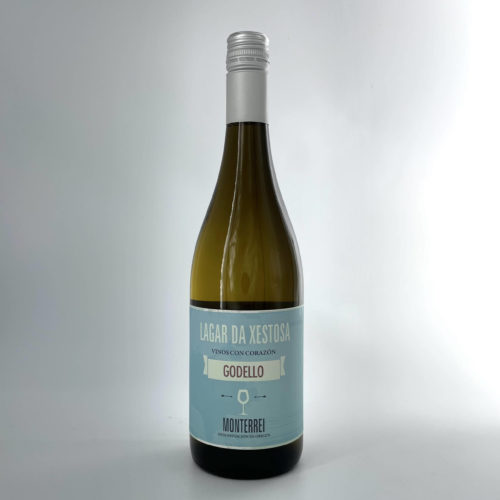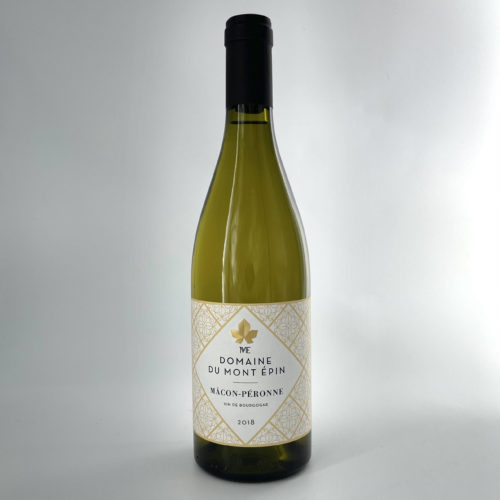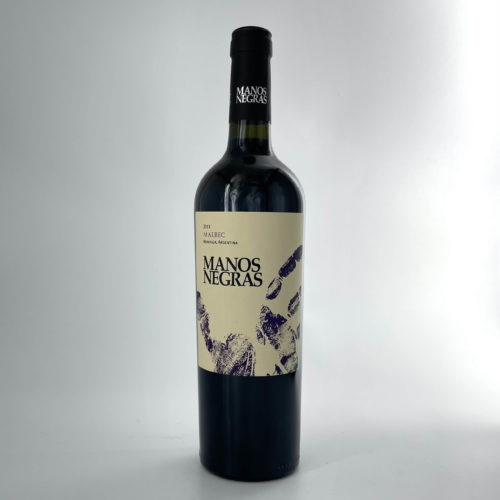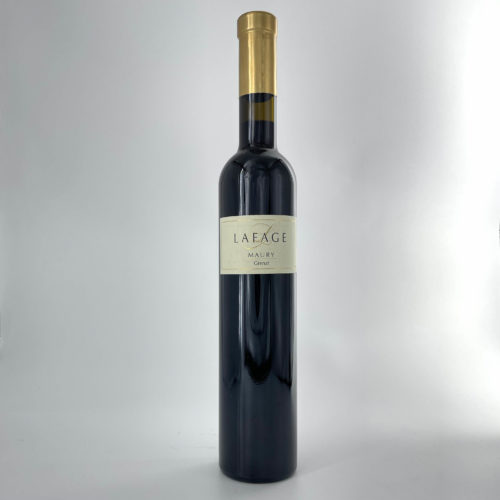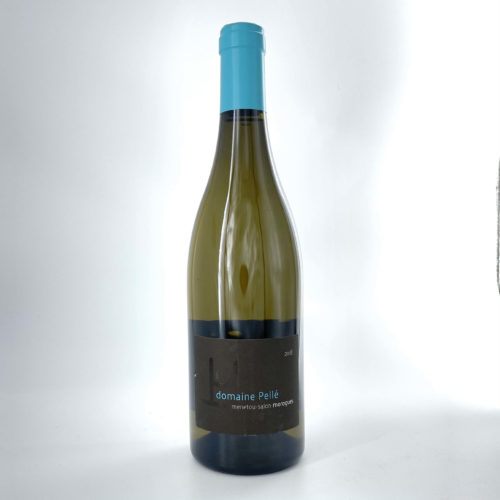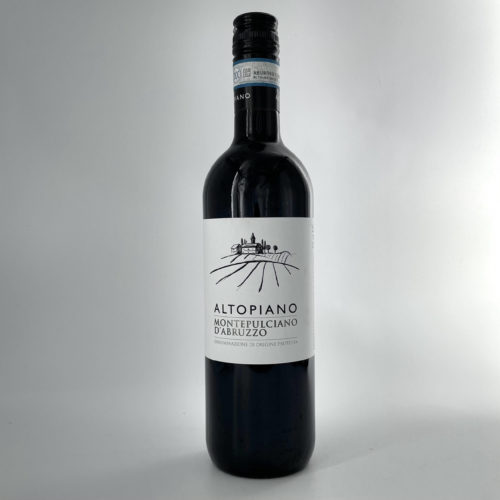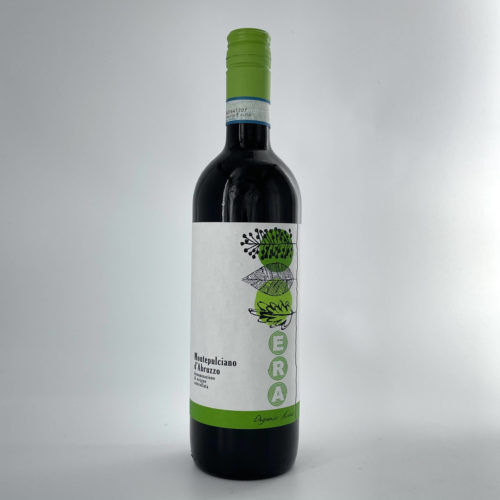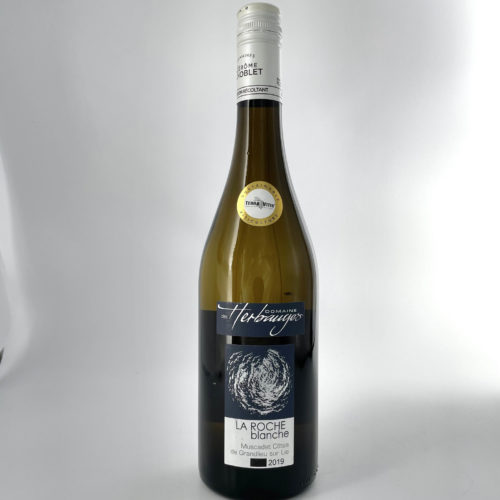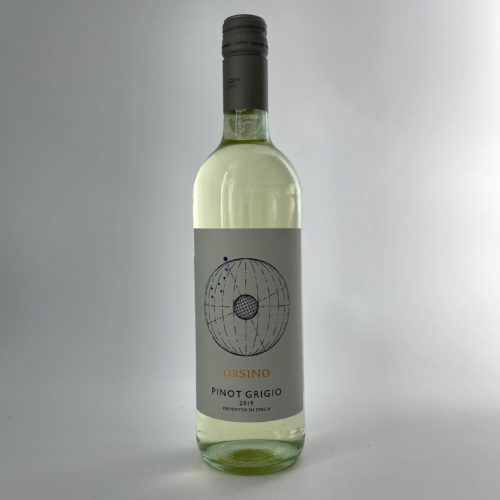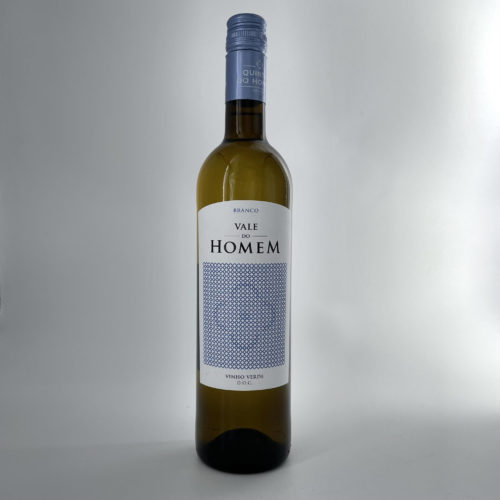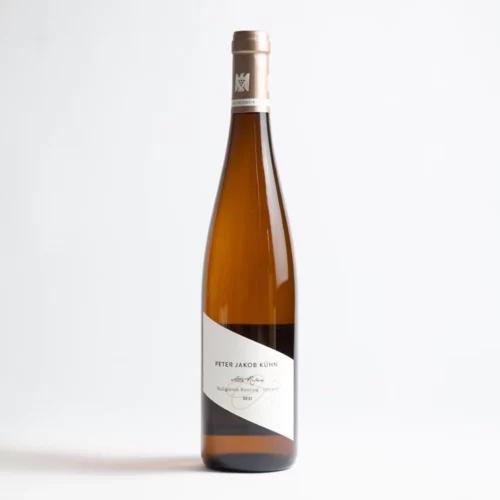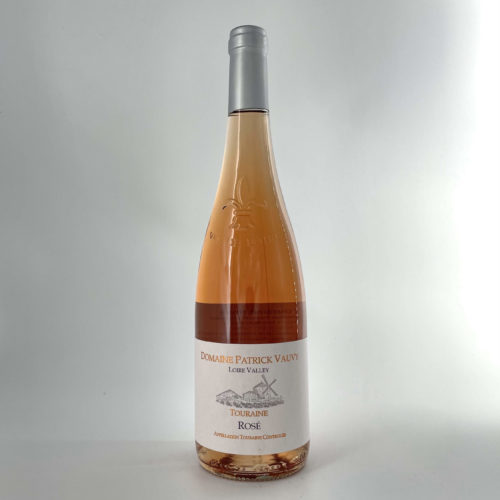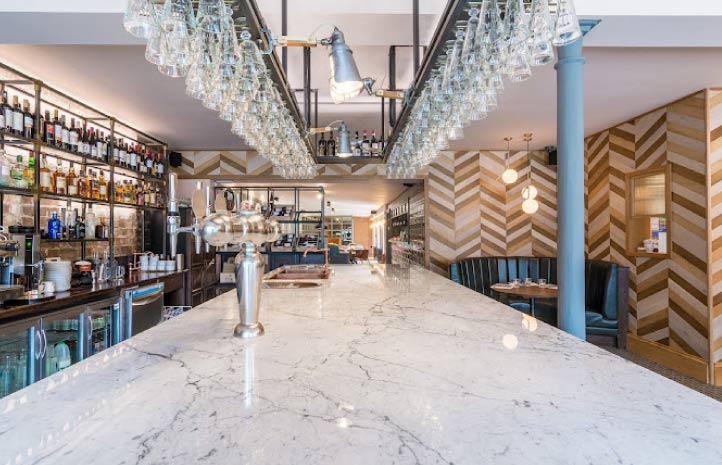Godello, Lagar do Xestosa, Galicia, Spain
In 2002 Adegas Pazo do Mar was created. It was born of a 30-year family vocation, which respects and admires the age-old Ribeiro wine- making traditions, but has a fresh spirit and vision for the future.
Adegas Pazo do Mar is dedicated to the production of native varietals, including Godello. They are in pursuit of the perfect balance between traditional and modern methods to achieve characterful wines with distinctive freshness. Their commitment to quality led to Pazo do Mar recently investing in the very best of oenological technology.
Traditionally each generation of our family had used this historic site as their initial launching pad as each embarked on its particular quality crusade; but when it was our turn, in the early 2000s, we decided on a totally fresh start not just philosophically (our tenets to respect nature and go back to the old ways) but in a location of our own – with Alejandra running exports and communications, Marco the viticulturist, and Richard the oenologist.
Macon Peronne, Domaine du Mont Epin, Burgundy, France
Richard and Stéphane Martin, the brothers behind Domaine de la Croix-Senaillet produce this wine. After freak weather patterns disrupted their harvest in 2015, they decided to take on two new vineyard sites in nearby Clessé. This allowed them to experiment with a different terroir, as well as expand their range with the incorporation of a number of new wines.
Malbec Manos Negras, Uco Valley, Mendoza, Argentina
Alejandro Sejanovich is arguably Argentina’s most knowledgeable viticulturist, working as vineyard director for Bodega Catena Zapata for 16 years, he pioneered high altitude vineyard planting and conducted ground breaking research on Mendoza Malbec clones.
Manos Negras focuses on latitude winemaking, planting Torrontes in the northern stretches of Cadayate in Salta, Pinot Noir in the southern-most region of Neuquen in Patagonia and cultivates 50 year old Malbec vines in the prized Altamira appellation in the Uco Valley.
Maury Domaine Lafage, Rousillon, France
Located between the sea and the mountains, half way between Perpignan and the Mediterranean coast, Domaine Lafage is one of our favourite new discoveries. Six generation ‘vignerons’, Jean-Marc and Eliane carry on the Lafage tradition, maintaining their family style of balanced, elegant wines displaying up front fruit. Their hard work has been rewarded with many accolades and medals from the Guide Hachette. What makes their estate particularly interesting is the fact that they grow a wide range of grape varieties (16) and produce an eclectic and varied range of wine styles, from crisp, clean whites to rich, fortified reds
Mentou Salon Morogues, Domaine Pelle, Loire Valley, France
For a long time, Menetou Salon was viewed as the poor relation of nearby Sancerre. Producers such as Domaine Pellé have ensured that is no longer the case. Anne and Paul-Henry Pellé currently preside over the family estate, the 4th generation of the Pellé family to tend vines here. They farm in a truly sustainable manner and aim to communicate the unique expression of the Menetou Salon terroirs in each bottling. Their ‘Morogues white’ is a blend of 7 different parcels from the highest slopes of the appellation. This location ensures the vines, which are rooted in Kimmeridgian marl soils, are exposed to cool temperatures coupled with long sunshine hours
Montepulciano d’Abruzzo, Altopiano, Feudo Antico, Italy
Feudo Antico was created on a small plot of land in the heart of Abruzzo. It is in Italy’s smallest DOP and the first designation of its kind in Abruzzo.
Starting from the 2013 vintage, all wines are Magis certified, the most advanced project for the sustainability of wine production in Italy. Currently their 15 hectares are cultivated using native varieties producing limited yields to ensure quality is retained. Clearly they highly value the land they work and this attitude is continued in the winery where the fruit and wine come into contact with no wood whatsoever, only concrete and glass. This guarantees the purity of the fruit, and its flavours, are conveyed from the vineyard direct to the glass.
Montepulciano d’Abruzzo, ERA, Veneto, Italy
From the winemaking team at Cantine Volpi comes this delicious range of organic cuvées called ‘ERA’, which we believe are a fantastic addition to our Italian portfolio. From their 5 distinct regional bases (Veneto, Marche, Abruzzo, Apulia and Sicily), the Volpi team cultivate a wide range of grape varietals that are fashioned into fresh, food-friendly wines.
Muscadet sur Lie, Domaine des Herbauges, Cotes de Grandlieu, Loire valley, France
This family estate has been in production since 1864 and is now the largest single estate in the region.
The vineyards benefit from an exceptional microclimate; the warmth of the Atlantic brings spring early, while the huge Lac de Grandlieu acts like a giant storage heater through growing season. Fourth generation winemaker, Jérôme is committed to the sustainability of the vineyards as well as to the health of the vineyard workers he has even grassed over 100% of the vineyards to reduce the vigour of the vines and to soak up rain at harvest. Each terroir of Domaine des Herbauges expresses its own subtle nuances, and reveals specific particularities and characteristics of the AOC Muscadet Côtes de Grandlieu Sur Lie appellation.
Pinot Grigio Orsino, Veneto, Italy
Orsino Pinot Grigio is from the volcanic soils of Veneto. Meaning “little bear,” it depicts a constellation of stars that overlook and protect the vineyards by night.
The vineyards are located on the hillsides and planted on clay soil. Cultivated in the espallier system and pruned Guyot style. Grapes are harvested at dawn and late in the day to maintain fresh acidity. Clusters picked during the cooler hours remain intact and there is no risk of skin fermentation during transport.
Quintas do Homem, Vinho Verde, Portugal
Quintas do Homem is one of those estates that immediately captivates you with its charm, its passion and dynamism.
Nuno and his father, Antonio, work the vines of their two vineyards, Quinta do Veiga and Quinta do Paço, where they grow predominately Loureiro and Arinto. Ana, their long term winemaker, is a fierce taskmaster, demanding quality fruit that enables her to deliver the pure, fine and elegant Vinho Verdes that Nuno expects. It’s very much a family exercise with Nuno and his father working the vineyards, Nuno’s mother preparing delicious, traditional Portuguese dishes for visitors and Ana, an adopted family member, making sure the wines are always perfect.
Hallgarten Riesling Trocken, Peter Jacob Kuhn, Rheingau, Germany
It was no surprise Peter Jakob Kuhn had been voted German winemaker of the year for 2016 – his wines are some of the best examples of German produce we have tasted. The Kühn estate was founded in 1786 by Jacobus Kühn and has remained under the watchful eye of his family ever since. Now, along with his wife Angela, and their son Peter Bernhard (who, during his training completed a stage with our friends at Domaine Zind-Humbrecht), cultivates the family land biodynamically, producing a range of Rieslings which showcase the Rheingau terroir. A fervent believer in the ecological benefits of biodynamic farming, Peter is at present, the only producer to follow biodynamic principles in the Rheingau. His wines are made in a fearless manner, with as much as possible left to nature’s own course. His experimental cuvées include wines which have undergone extra-long lees ageing or been fermented and aged in amphora vessels. Peter is a producer we are delighted to introduce to you all and we firmly believe that his wines will become iconic in the very near future.
Rose de Touraine, Domaine Patrick Vauvy, Loire Valley, France
Patrick Vauvy manages 30 hectares of vines, the majority planted with Sauvignon Blanc.
The Domaine has been the hands of the Vauvy family for generations, Patrick took over and has brought new vision and an experimental style to the Domaine. He is often the last of his neighbours to harvest. Located above the banks of the Cher River, the soil is predominantly sand based giving the wines a fruit driven, immediately appealing style.

